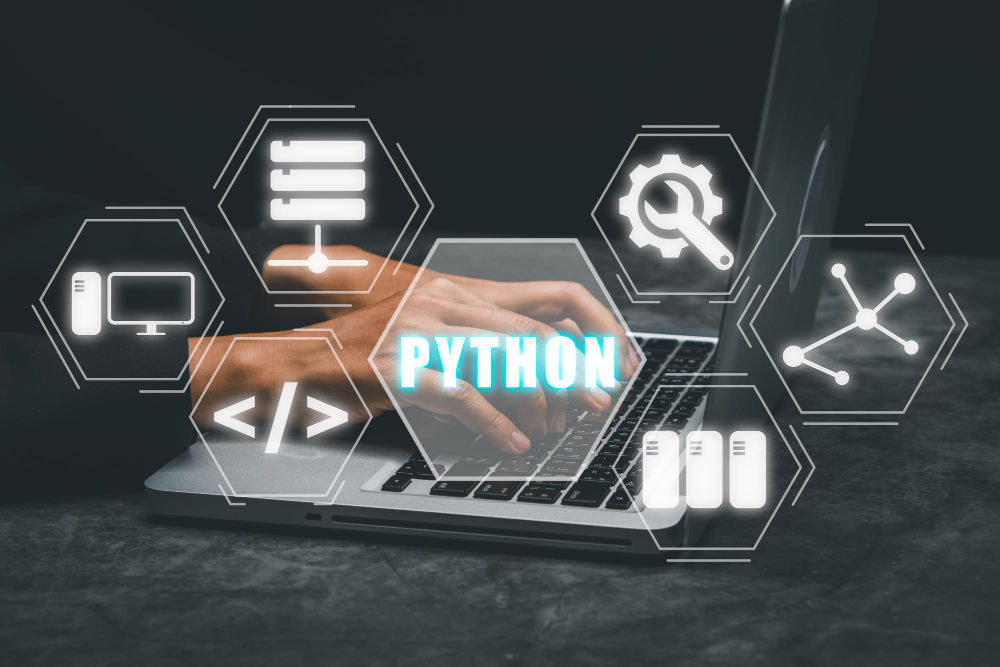
Advance Python
Unlock the full potential of Python and elevate your programming skills to a professional
level in this comprehensive Advanced Python course.
Delve into advanced data structures, algorithms, object-oriented programming
principles, functional programming paradigms, web development frameworks, and
database interactions.
Apply your knowledge to handle complex data processing, build dynamic web
applications, automate tasks efficiently, and tackle real-world challenges in various
domains.
Frequently Asked Questions
Although it is difficult, it is possible to learn advanced Java in 30 days by: -focusing on the fundamentals of Java; -exploring introductory advanced Java topics; -taking online courses or tutorials.
Core Python is the essential grammar of the language. It includes the basic building blocks like variables, data types, and loops you need to write simple programs. Mastering core Python allows you to automate tasks and build basic applications. Advanced Python, on the other hand, builds upon this foundation. It delves into specialized areas like object-oriented programming, web development frameworks, data science libraries, and even machine learning. While the specific topics may vary, they all use core Python in more intricate ways. Imagine it as using advanced vocabulary and sentence structures to write complex novels – you still need the alphabet and grammar (core Python) as the base.
Python developer salaries can vary depending on experience, location, and skills. But generally, they tend to be competitive in the tech job market.
Python viva questions can test your grasp of basics (data types, loops) and potentially delve into OOP (classes, inheritance). Be ready to write code for tasks or explain problem-solving approaches. If your course focuses on a specific area like web development, expect questions related to that domain's Python libraries. Overall, showcase your Python understanding and ability to think through coding challenges.
Basic questions in Python often assess your understanding of the core building blocks. Expect inquiries about data types (numbers, strings), how to use operators for calculations and comparisons, and controlling program flow with loops (for, while) and conditional statements (if, else). You might also be asked to explain or write simple Python code to demonstrate your grasp of these fundamental concepts.
Python is a versatile, high-level, interpreted programming language. This means it's easy to learn, works on many platforms, and lets you run code without pre-compilation. It's great for beginners, web development, and data science.
In Python, scope determines where you can access a variable. Local variables are created inside functions and can only be accessed within that function. Global variables are defined outside functions and can be accessed from anywhere in your program. Be cautious with globals, as they can lead to unintended consequences. There's also a nonlocal keyword for specific use cases within functions.
In Python, keywords are special reserved words that have specific meanings within the language. You can't use them as variable names or function names because they have built-in purposes. Examples include "if", "else", "for", "while", and "def". These keywords define the structure and flow of your Python programs.
Advanced Python goes beyond the basics. It involves object-oriented programming (classes, inheritance) for reusable code. You'll explore data structures (lists, dictionaries) and algorithms for efficient data handling. Advanced features like decorators and context managers offer more control over your code's behavior. Finally, vast libraries like NumPy (data science) and Django (web development) open doors to specialized fields.
Python was created by Guido van Rossum. He is a Dutch computer scientist who designed the language in the late 1980s at Centrum Wiskunde & Informatica (CWI) in the Netherlands.
Van Rossum was a big fan of this British surreal comedy troupe and their show. When he was in the process of developing the language, he felt it needed a short, catchy, and slightly mysterious name. He liked that Python fit the bill, and the name stuck! While the language itself is serious and powerful, the name injects a touch of lightheartedness.
1. Master advanced Python data structures and algorithms
2. Strengthen object-oriented programming (OOP) skills
3. Explore functional programming paradigms
4. Build dynamic web applications with Python frameworks
5. Interact with databases effectively




